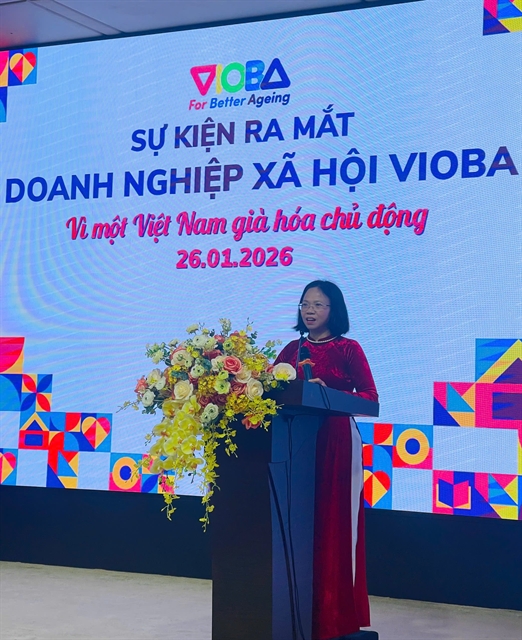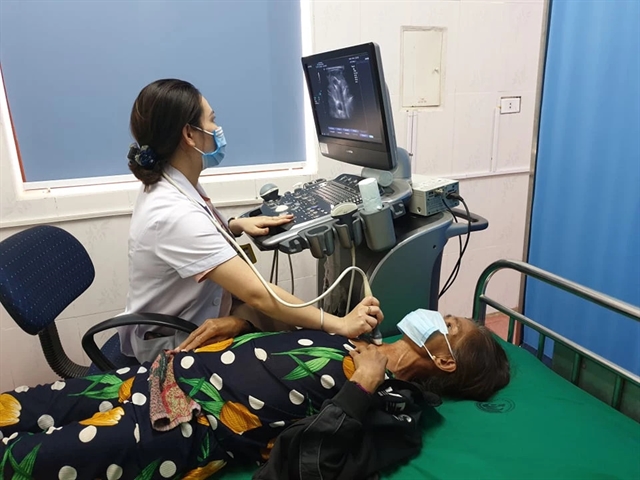 Society
Society

 |
| A doctor provides ultra-sound services to a patient at Tương Dương District Health Centre in the central province of Nghệ An. — VNA/VNS Photo |
HÀ NỘI — The central province of Nghệ An has succeeded in attracting young doctors to work in healthcare facilities in mountainous districts, contributing to the improvement of preventive healthcare and medical examination and treatment quality in these areas, the provincial Department of Health has said.
Recruiting doctors to work in commune health centres and district hospitals in mountainous regions used to be challenging in previous years. However, the recruitment process has become more favourable now.
Since 2020, the local healthcare sector has successfully recruited 214 doctors for district hospitals and 12 doctors for communal health centres. Specifically, in the mountainous district of Kỳ Sơn, six doctors have been recruited, bringing the total to 22 doctors for all 21 commune health centres in the district.
Over the past three years, Quế Phong District has recruited nine doctors, raising the total number of doctors in 13 communal health centres to 15. Tương Dương and Quỳ Châu districts have recruited five doctors for health centres.
According to the department, mountainous district health centres found it easier to recruit doctors due to overall improvements in living conditions, particularly the rising quality of education in the district. Many students from mountainous areas passed entrance exams for medical universities, and district health centres prioritised hiring local medical graduates.
Vi Xuân Chiến, director of Tương Dương District’s Health Centre, said that the young doctors actively participate in medical activities, updating their knowledge through bedside rounds.
"Young doctors have applied the specialised knowledge they acquired in medical examinations and treatments, creating conditions for people in poor districts to access new technological advances such as advanced techniques in laboratory testing or endoscopic surgery," he said.
Lỳ Bá Dì, a young doctor, has been working at the emergency department of the Tương Dương District Health Centre since 2016. Despite challenging conditions, the young doctor has successfully implemented various advanced medical techniques, such as inserting endotracheal tubes for patients on ventilators.
Dì, like other young doctors, has implemented advanced techniques such as early cervical cancer screening, searching for malaria parasites in peripheral blood, and diagnostic cytological examinations in biological fluids using manual methods.
They have successfully conducted laparoscopic surgery for appendicitis and ovarian cysts. As a result, patients can undergo laparoscopic surgery locally without being transferred to provincial hospitals nearly 200km away.
To attract high-quality human resources, the department said in the upcoming time, it will apply a system of salary scales and incentive policies to attract healthcare professionals to work at the grassroots health centres.
The department will also continue to focus on implementing full salary regimes, allowances for healthcare officials, mobilising other societal resources to provide material support for healthcare professionals to alleviate difficulties.
Additionally, efforts will be made to improve the working environment for healthcare officials and staff, and to enhance the organisation of job introduction sessions to connect medical graduates with healthcare recruitment facilities, it said. — VNS





 Brandinfo
Brandinfo